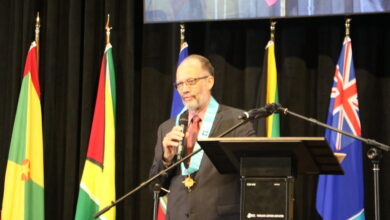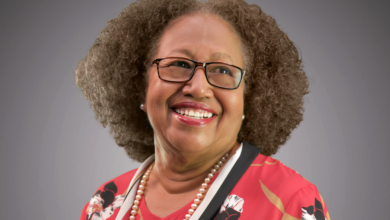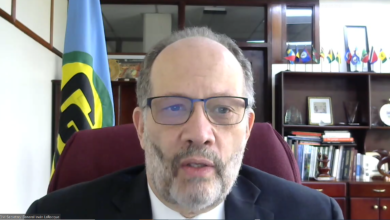(CARICOM Secretariat, Turkeyen, Greater Georgetown, Guyana) It is an honour and a privilege for me to recognize and celebrate the women and girls of the Caribbean Community on International Women’s Day, 8 March 2012, with this statement.
This annual celebration gives us a special opportunity to reflect on the achievements, and on ways of overcoming the challenges we face, as we strive towards realizing gender equality and women’s empowerment in the Community. This year’s theme, “Empower Rural Women – End Hunger and Poverty” points to the urgent need to enable an important and often overlooked group of women and girls to achieve a better quality of life.
Addressing the special needs of rural women and girls is important to Caribbean development, gender equality in the Region and the sustainability of development gains.
According to data from the United Nations, rural women constitute one-fourth of the world’s population. They are leaders, producers, entrepreneurs and service providers, and their contributions are vital to the well-being of families, communities and societies, and the achievement of the Millennium Development Goals.
Rural women account for a great proportion of the agricultural labour force, produce the majority of food grown, especially in subsistence farming, and perform most of the unpaid care work in rural areas. Agriculture provides a livelihood for 86 percent of rural women and men and employment for about 1.3 billion smallholder farmers and landless workers. Of these, 43 percent are women, yet their rights and contributions have been largely overlooked. In our Region, according to UNFAO statistics for 2011, rural women in the agricultural labour force are estimated to comprise 25 percent, ranging from three percent in Belize to 50 percent in Barbados.
Rural women, globally, also face more difficulty than men in accessing public services, social protection, employment and markets, due to cultural norms, security issues and lack of identification documents. The Region tends to mirror the global reality in this regard. The living conditions of rural women in the Caribbean are characterized by high levels of poverty as well as less access to social services, adequate housing and health services. It is apparent that while strides have been made in a number of areas for women in the Region, most rural women remain marginalized to these rights and benefits.
The international community contributed USD7.5 billion in official development assistance to rural development and the agricultural sector in 2008–2009. However, only 3 percent of the amount was allocated to programmes where gender equality was the main objective.
The stability of the Region and the global community is threatened by increasing poverty and inequality, lack of food security and the decline of rural communities. For the Region to effectively address these challenges and the broader social and economic impact, we must pay attention to the persistent gaps that impact the lives of rural women. According to the United Nations, if rural women globally had equal access to productive resources, agricultural yields could reduce the number of chronically hungry people by between 100 and 150 million.
Rural women in the Caribbean share with their urban counterparts an invidious threat to their development and well-being in the form of gender-based violence. There is pressing need to engage young women and men, girls and boys in advancing gender equality and eliminating and preventing all forms of violence against women and girls.
The Community is seized of the importance of this issue and very soon the CARICOM Secretariat will publish the findings of our CARICOM Advocate for Gender Justice – Dr. Rosina Wiltshire – who has coordinated research in several Member States to prepare a report on “Youth, Masculinities and Violence in the Caribbean.”
Also on the matter of gender-based violence, the Secretariat is pleased today to launch the public campaign products that were produced at a Workshop in Suriname last year. Fifteen artists from Belize, Guyana and Suriname came together to add their voices to the global campaign led by the United Nations Secretary-General, to end violence against women. They produced public service announcements, jingles, a calypso and a documentary on sexual, psychological and physical violence and we are pleased to share these with Member States of the Community. The project was sponsored by UN Women and we thank them most sincerely for their support and collaboration.
In closing, I wish to recognize the significant contribution that the women of our Community make to the stability and development of this Region, and to call for the recommitment of all our efforts to improving equality, justice and peace for all.
I wish us all a happy International Women’s Day.





